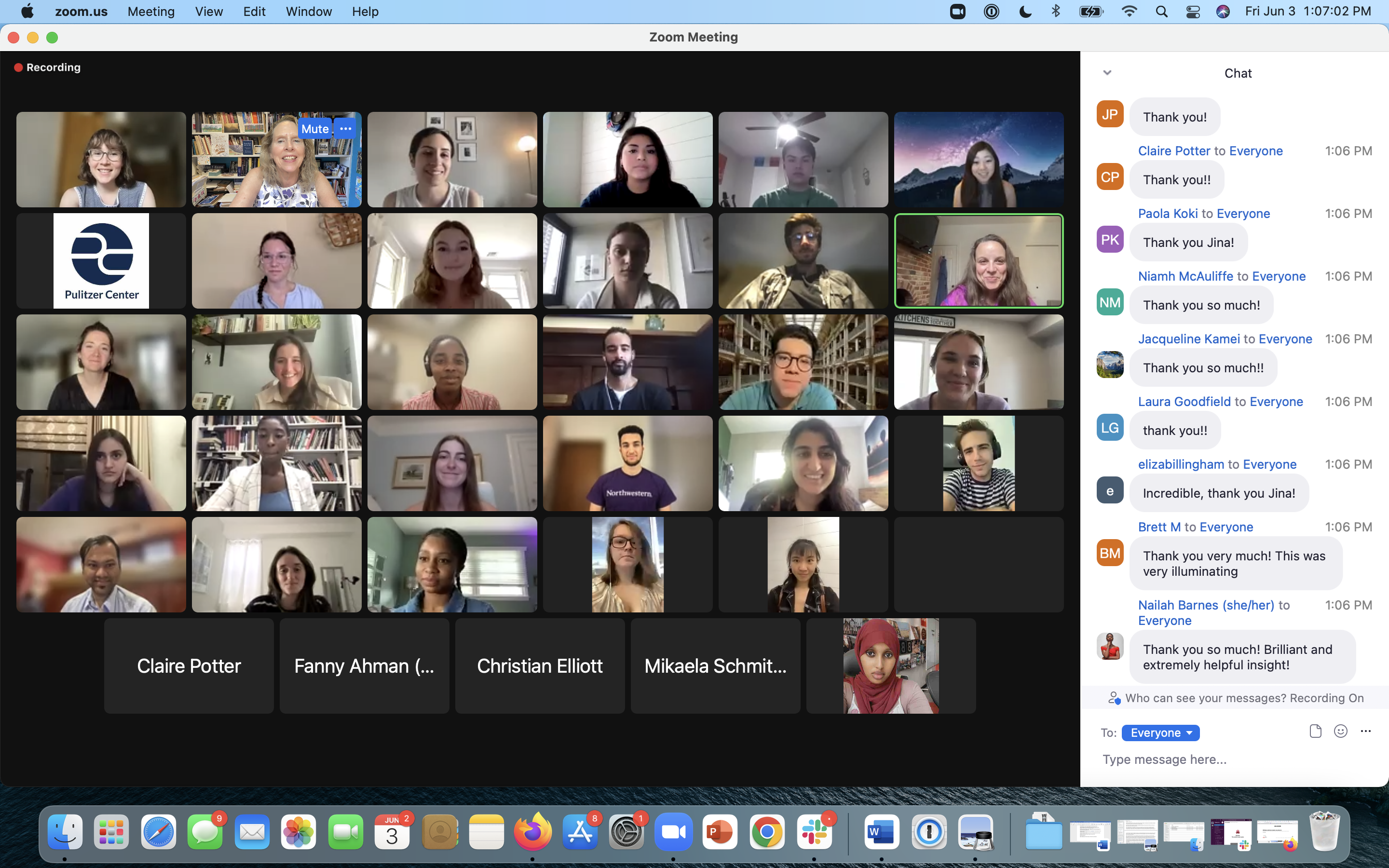Pulitzer Center Update June 14, 2022
2022 Reporting Fellows Attend Virtual Orientation

The Campus Consortium team welcomed our 2022 Reporting Fellows at the first session of this year's orientation on May 31, 2022. Thirty-eight students and recent graduates from our campus partners zoomed in from across the U.S. and Morocco—most meeting each other for the first time. Coming from journalism schools, liberal arts colleges, HBCUs, schools of public health, community colleges, and state universities, they will cover a wide range of issues from migration and refugees to justice and climate.
Later in the week Pulitzer Center editors provided reporting tips and advice. A few nuggets: Marina Walker Guevara recommends having a coffee with a local journalist—and developing a collaborative mindset. Boyoung Lim says it's OK to take no for an answer. No one owes you their story. Steve Sapienza recommends pausing in between questions while conducting an interview, adding "You'll be surprised at what you'll hear."
Susan Ferriss says she has learned to question assumptions. So has Dana Thompson. "If your mother tells you she love you," she says, "check it out." Dana also advises, "Don't be afraid to ask."
Members of our Campus Consortium Advisory Council weighed in at another session. Bill Gentile, American University professor and journalist, warned Fellows: "As journalists, you have power. Don't let your power intoxicate you. Use it with care." Anne Donohue, a radio producer from Boston University, had two bits of advice: Bring Ritz crackers and peanut butter when traveling to a country where the food is unfamiliar AND always record your interviews.
"Be selective about the characters you choose to center your story," says independent journalist and Reporting Fellow alum Sydney Combs. Jaime Joyce, TIME for Kids editor, stresses curiosity and recommends writing down 10 ideas a day. Howard University professor Ingrid Sturgis remarks, "Be open to the lived experiences of people. How do things look from their perspective?" She also spoke about solutions journalism and the value in telling stories of resilience.
Boston University Global Health professor Jen Beard says, "Don't underestimate the value of starting with an open-ended question." For example, don't ask "What are the mental challenge you are facing?" Say instead, "what challenges are you facing?" Bill Freivogel, journalist and Southern Illinois University Carbondale professor, asked Fellows not to hide what "might seem inconvenient." The reader must not feel "you're cooking the books."
For the orientation finale, long-time Pulitzer Center grantee and editor of Guernica, Jina Moore discussed the difference between a topic and a story. Stories must show that something has happened or is happening. They must also tell us why we should care. Do your pre-reporting and come back with a story—not just more information. Always have an answer to the question, "So what?" You also have to know your audience, she said. As one Fellow remarked, the "so what" in what community may be different in another.
Jina gave other tips as well: the most important questions are the follow-ups. The most important verbs are active. Don't ask questions in the passive voice. That's a way to avoid accountability.
The orientation, Fellows say, left them invigorated, excited, better prepared and for some a little apprehensive (which may not be a bad thing). Many thanks to Jina Moore, the Campus Consortium Advisory Council, and the Pulitzer Center editors for inspiring our Fellows. And good luck to all those embarking on reporting projects.
